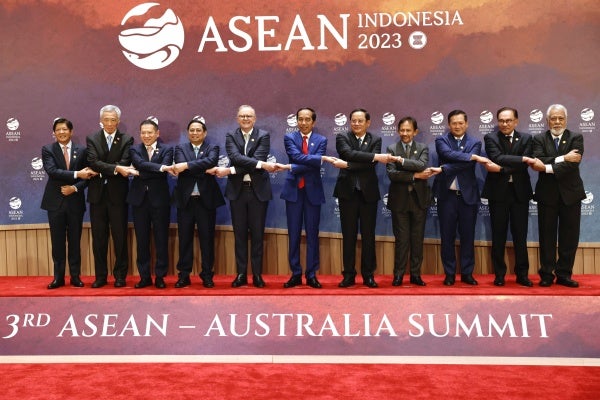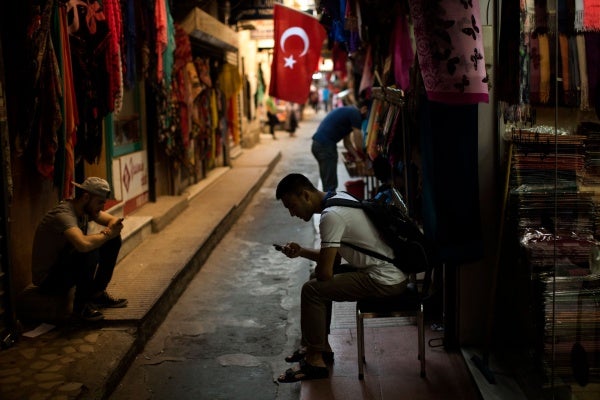Lire la version en français / Hier die deutsche Ausgabe lesen
Leaders of the Association of Southeast Asian Nations (ASEAN) and Australia are meeting in Melbourne this week, offering an opportunity to reflect on where the region is heading.
The situation is not good.
If we look at the state of democracy and human rights in south-east Asia in recent years, we see serious backsliding and growing repression. And ASEAN’s role has been pathetic.
Perhaps the most dramatic disintegration of democracy has been seen in Myanmar. In 2015, the party of Nobel Prize winner and long-detained dissident Aung San Suu Kyi won a sweeping victory in national elections. The military still maintained a lot of power in the country, but it offered a moment of hope.
In 2017, however, the military conducted a brutal counter-insurgency campaign that included crimes against humanity and acts of genocide against the Rohingya minority, with systematic massacres, rape, and arson. Rather than side with the victims, Aung San Suu Kyi stood by the military, and in 2019 she even defended the military’s campaign at the World Court in The Hague.
It did her little good. Two years later, in 2021, the military ousted her civilian-led government in a coup, and she was again imprisoned on bogus charges, along with tens of thousands of others. Under the junta since then, the people of Myanmar have been suffering through an ever-downward spiral of atrocities.
Elsewhere in the region, the repression and reversals may not be as dramatic, but they are still deeply worrying.
Cambodia has a “new” leader after Hun Sen handed power to his son Hun Manet, but the younger generation of ruler is just as authoritarian. Physical assaults of opposition members have continued, opposition leaders are in prison, and the main opposition party was banned from contesting the sham 2023 elections.
In the Philippines, Ferdinand Marcos Jr – son of the late dictator Ferdinand Marcos – is in power. There was once a hope he might end the horrific abuses that took place under his predecessor, Rodrigo Duterte, but no. Security forces still commit point-blank killings of drug suspects, and the government refuses to co-operate with the International Criminal Court’s investigation.
In Indonesia, President Joko Widodo’s term is coming to an end, and his likely successor is current defense minister Prabowo Subianto, a man implicated in massacres in East Timor in 1983, and in the 1997-98 kidnappings of activists in Java, which led to his dismissal from the army.
If there’s a common thread running through all these countries and the region generally, it’s the absence of accountability. Perpetrators of serious crimes never face justice, and so they keep committing those crimes. Others see they get away with it, and so are not afraid to join in the abuses.
This is hardly unique to south-east Asia, of course, but what is region-specific is the Association of Southeast Asian Nations. ASEAN has been useless in addressing these problems plaguing the region - “woefully inadequate and impotent” in the words of my expert colleague, Elaine Pearson.
Even governments like Australia (which is not a member of ASEAN) have failed to effectively defend democracy and human rights in the region – usually for fear of damaging trade relations with strategic allies or of sending them deeper into the embrace of China than they already are. If they say anything, Australia and others usually prefer to say it privately. This is considered a “pragmatic” approach.
But when addressing human rights abuses, so-called “private diplomacy” is pointless diplomacy. Words whispered off-stage have no impact on the players. And how exactly is passively watching the decline of human rights and democracy in your neighborhood “pragmatic” for a democratic country in the longer term?
The Australian government may not answer these questions or make any course corrections as it hosts this week’s summit in Melbourne. But it should.









